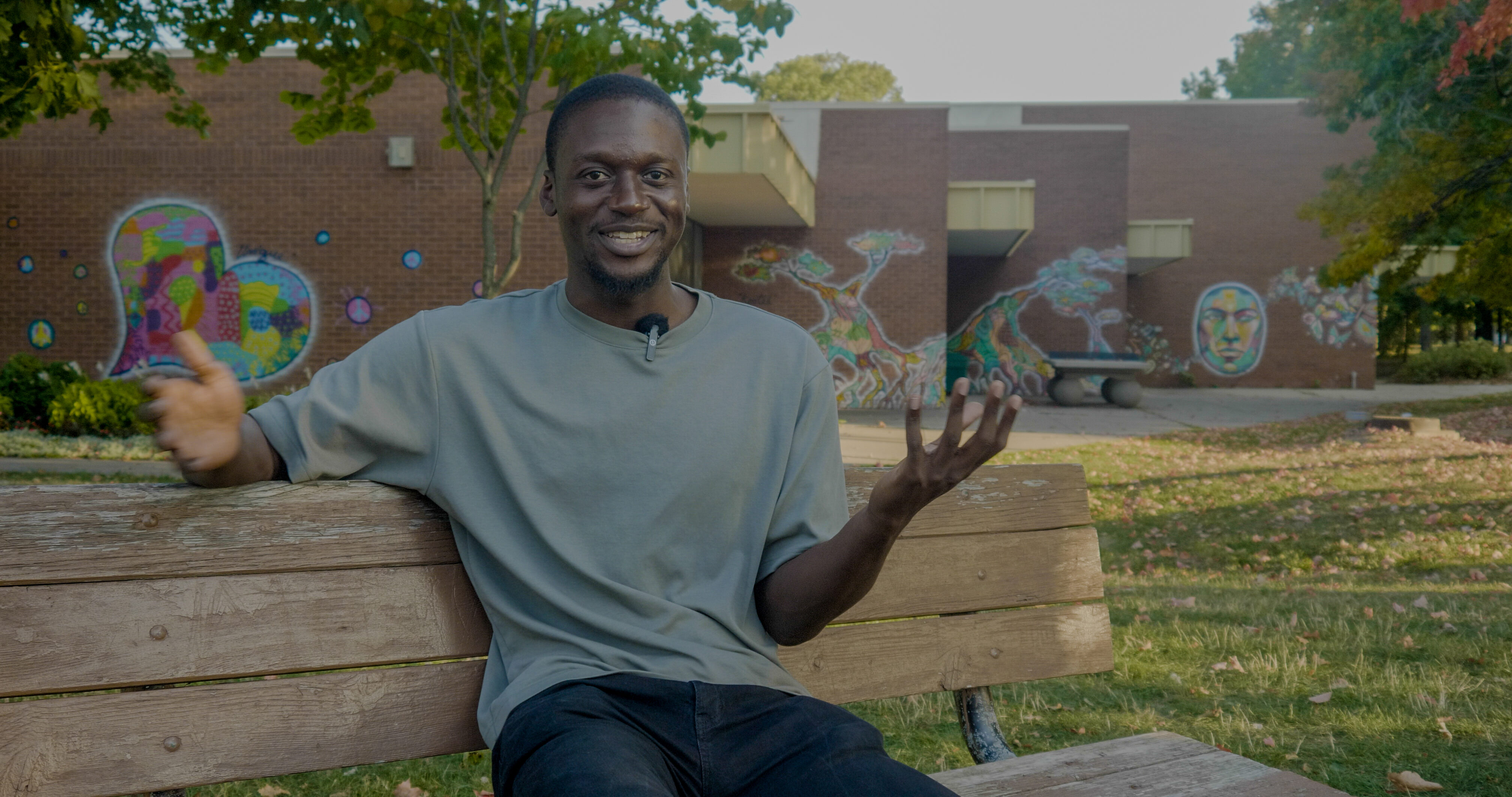THE GREEN LINE
ACTION JOURNEY STORY
Why everyone needs to step up to solve Toronto's housing crisis
Governments at all levels are investing over $1 billion to address affordability in the city. But advocates say stricter regulations are also key to protecting tenants.

Deqa Nur's family moved to Canada from Somalia in 1993. Now a 43-year-old mother of three, she says subsidized housing was key to breaking her family out of poverty.

This story is part of The Green Line's Action Journey on Toronto's housing crisis. Our seven-part story series examines the impossible climb towards home ownership, precarious rental situations and the pipeline from unaffordability to living on the streets.
Sign up for our storytelling event and Story Circle on March 19, 2024, where attendees will share their experiences with the city's housing market and brainstorm community-led solutions to navigate housing in Toronto. Dinner and refreshments will be provided.
Getting into subsidized housing was a lifeline for Deqa Nur.
Nur’s family moved to Canada from Somalia with nothing but a suitcase in 1993. Now a 43-year-old mother of three children ages 11, 14 and 18, Nur, who was a member of the City of Toronto’s Tenants First Advisory panel from 2017 to 2019, says securing subsidized housing was critical to breaking her family out of the poverty cycle.
That’s why, in 2007, she and her family were especially grateful when they were able to move into a rent-geared-to-income housing unit managed by the Toronto Community Housing Corporation (TCHC). Without it, Nur wouldn’t have been able to complete her studies at York University in 2022. “The city is trying. But I think the housing crisis — it's something that is going to need more than the city,” she says.
Tenants The Green Line interviewed stressed the importance of provincial rent control — removed for newly constructed buildings under Premier Doug Ford in 2018 — as a key protection they’d like to see return. Many also advocated for reinvestments into public housing and purpose-built rentals, which have historically been funded or incentivized by the federal government.
One ongoing policy demand from ACORN Toronto is for the City to institute landlord licensing, a policy that’s in place in cities such as New Westminster, B.C. The idea is that a professional licensing program would vet and hold landlords to minimum professional standards, like conducting timely repairs and keeping buildings maintained. ACORN says licensing would also deter practices like renovictions.
It’s also pushing for a colour-coded building rating system, similar to DineSafe, which would clearly display a building’s rating with information on how to call 311 to report problems.
‼️Send a message to your councillor to support colour coded signs:https://t.co/oq26UqGUFW
— Toronto ACORN (@TorontoACORN) March 25, 2022
An overwhelming amount of tenants in #Toronto support having signs - it's time the City steps up and listens to tenants & not landlord lobbyists. pic.twitter.com/riP9al8srU
There’s also excitement over new collaborations with the provincial and federal governments. In November 2023, Ontario Premier Doug Ford and Toronto Mayor Olivia Chow announced a new deal for the City to receive an additional $600 million in shelter and homelessness support, as well as up to $342 million through the Building Faster Fund, from the province over three years, with certain conditions. An additional $471 million in federal cash was likewise announced in December 2023 to help Toronto build new homes over the next three years, and the City now plans to build 65,000 rent-controlled homes by 2030.
“We're really grateful that the province and the feds are coming back to the table to talk about housing,” says Lindsay Viets, director of operational planning and program services for TCHC. “In terms of affordable units, new RGI [rent-geared-to-income] units — whatever the city needs, we are there for it.”
Some of these projects are already underway. Viets says TCHC is systematically replacing some of its older units in areas such as Regent Park, Allenbury Gardens and Lawrence Heights.
With many variables and stakeholders at play, it’s clear that there’s no silver bullet that will magically bring Toronto out of crisis. But Nur believes a combination of evidence-based policies, political will and community-driven action will move us in the right direction.
“There has to be collaboration from all angles, from all people, from all residents, from all stakeholders,” she explains. “Ethically, this is not the city we want. We want a better city. We want a city that cares and welcomes and supports.
“We have enough people. We have enough resources. But we have to use our resources and our human capacity in a way that would help everybody.”
The Green Line's cost-of-living calculator helps you budget your monthly costs of food, rent and transportation in Toronto.
Fact-Check Yourself
Sources and
further reading
Don't take our word for it —
check our sources for yourself.

